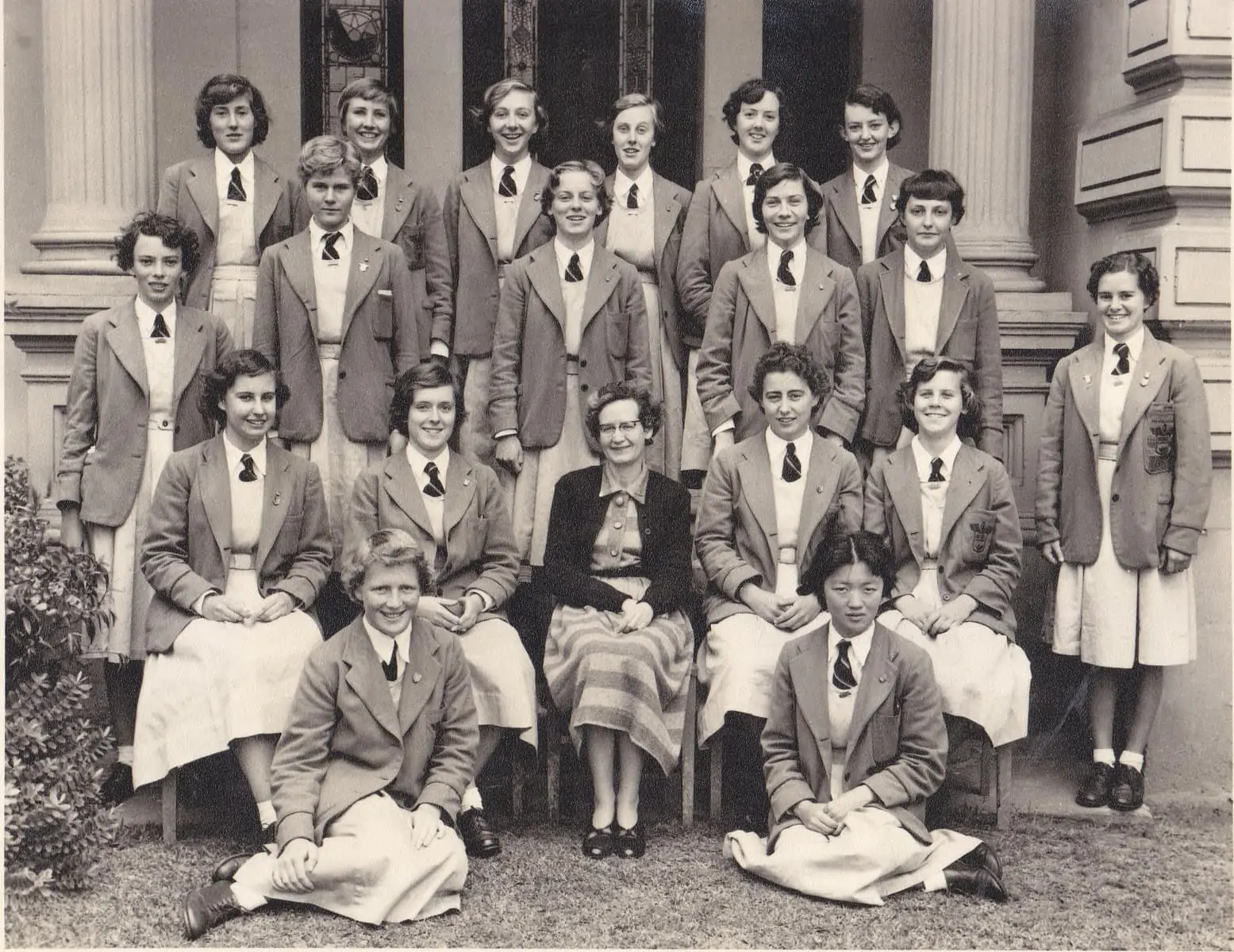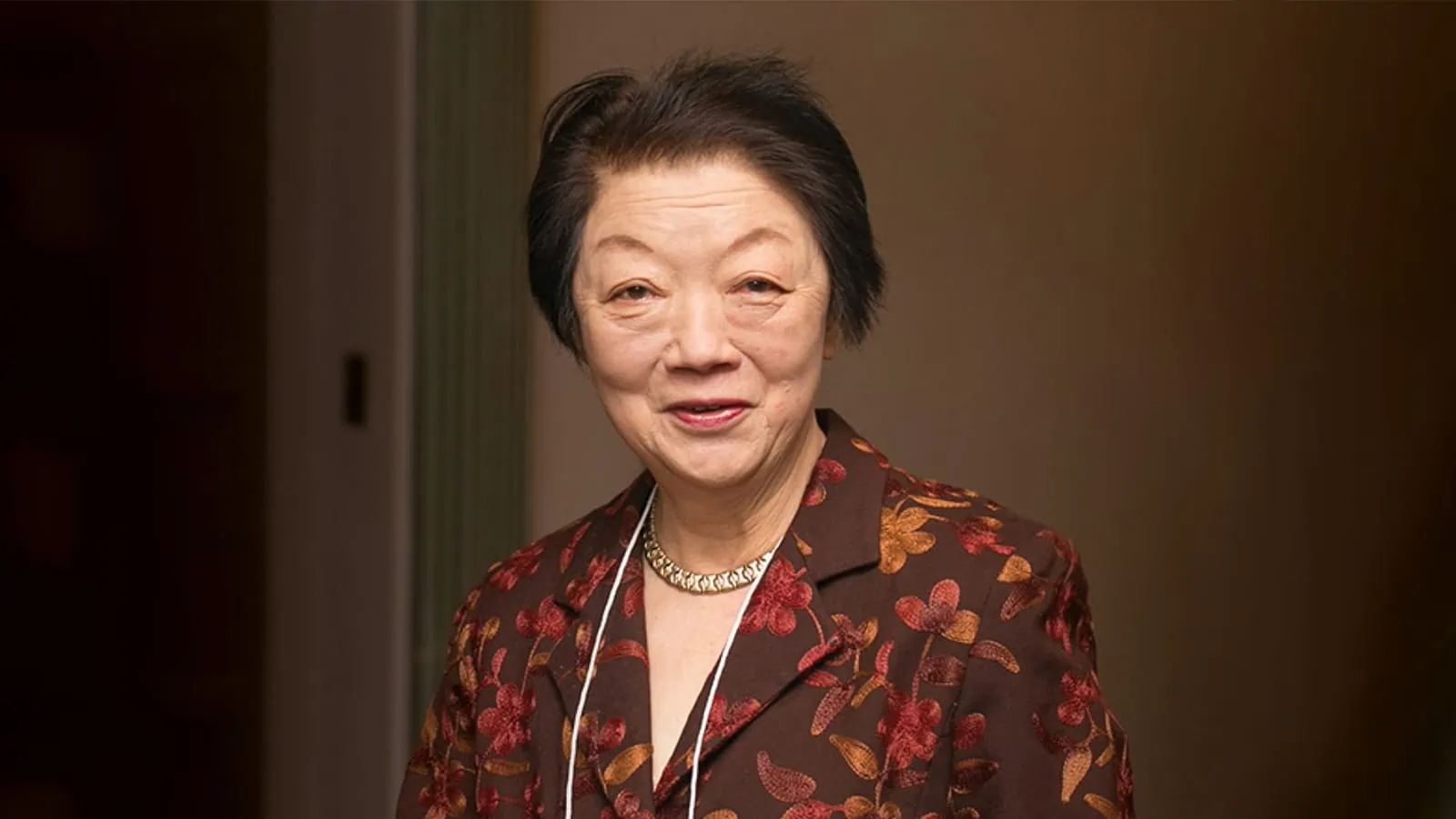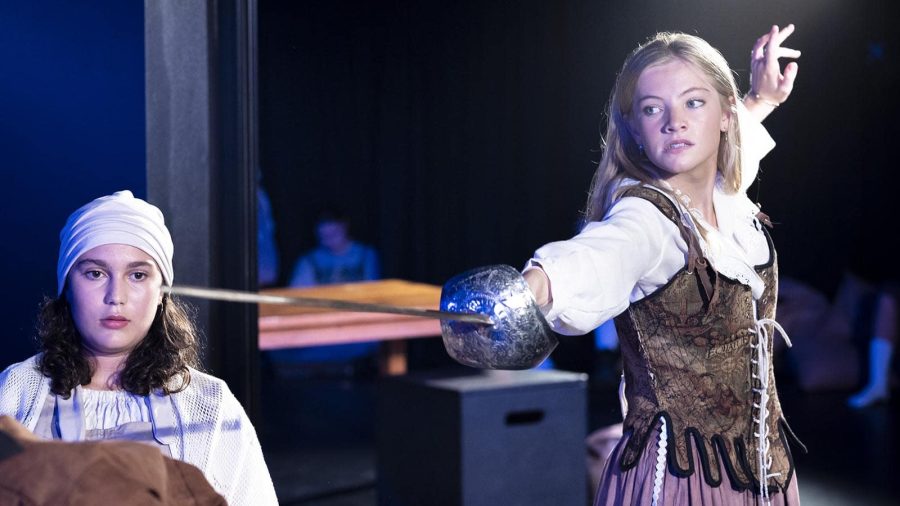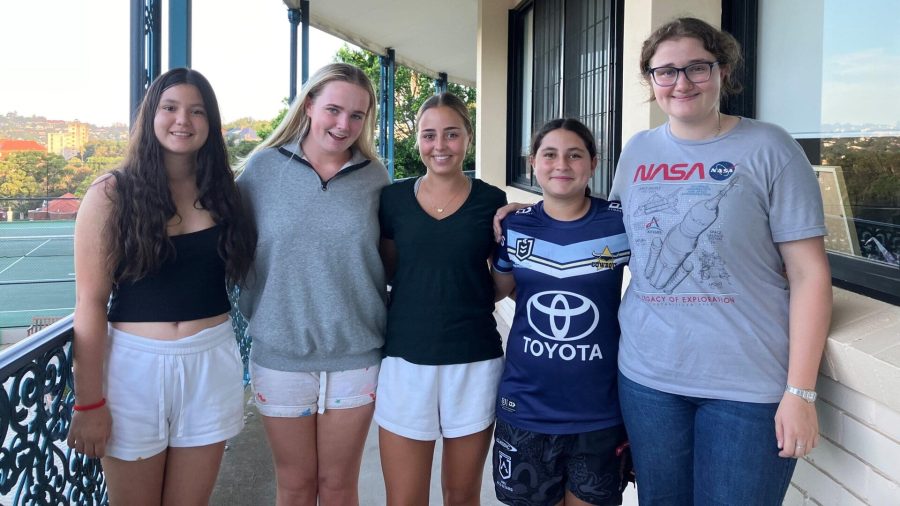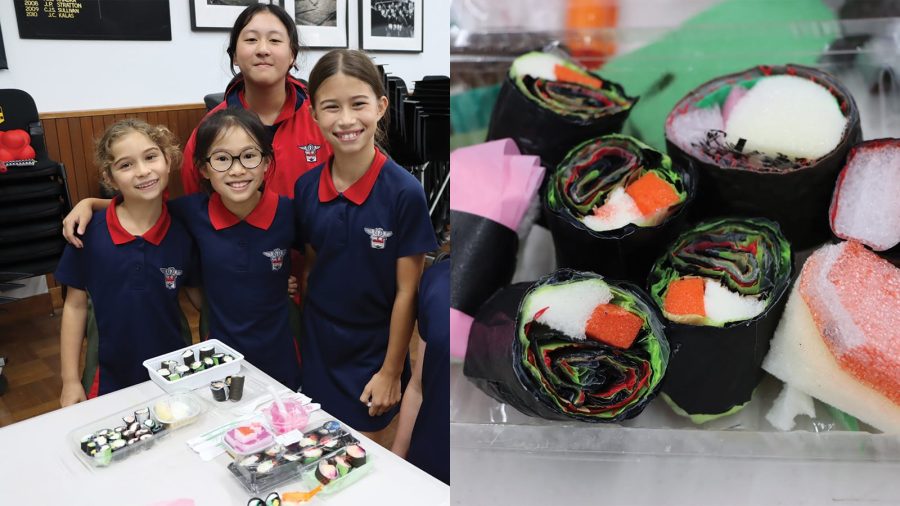Ascham sees many Old Girls leave through White Gate and live remarkable, inspiring and motivating lives. Some are visible and known to us and we celebrate their successes; others fly under the radar— their stories remain untold.
Sixty-seven years after leaving Ascham, we have had the privilege of being reintroduced to Jiu-Hwa Lo (Class of 1955). The transformational gift she has recently given Ascham will have impact for generations to come.
This year, Jiu-Hwa gifted our School funding for the consolidation of our Ascham Ngara Commitment, which also includes the Jiu-Hwa Lo Ngara Scholarship for First Nations students. Ngara is a Gadigal word encompassing the value of learning—something that Jiu-Hwa holds in high regard. Jiu-Hwa’s commitment to education, especially to those students who are disadvantaged, is testament to her parents and their sacrifices for her and her sister Jiu-Fong Lo (Class of 1951).
Now 85 years of age, Jiu-Hwa has shared her story with us, what motivates her to give, and her enormous vision for education equity and opportunity.
My early childhood was spent fighting childhood illnesses and fleeing war in China, both of which interfered with my education. When my father—among the most accomplished scholars, educators, diplomats and cultural leaders in 20th-century China—fled his Ambassadorial post in India, his friend the Australian Ambassador intervened and arranged for my mother, sister and I to be sent to Sydney and directed us to Ascham.
Jiu-Hwa thrived at Ascham, winning many academic prizes and gaining confidence both intellectually and personally. She attributes the education she received here as laying the foundation for her subsequent academic successes, including a long career as a professor of Chinese history in the United States.
Thanks to Ascham, my life stabilised and I felt welcome and secure. The extraordinary academic program lit the fire of my love for learning and gave this refugee child an education that led to a full scholarship at one of the United States’ best universities. I became a scholar, teacher, and contributor to the preservation of Chinese history and culture, thereby fulfilling my parents’ hopes for me.
After graduating from Ascham in 1955, Jiu-Hwa went on to study at the University of Sydney and later received a Barbour Scholarship to study at the University of Michigan where, in 1972, she earned a PhD in Chinese history. This scholarship played a vital role for Jiu-Hwa, as it was earmarked for Asian students at a time when there were very limited opportunities for female Asian students to study abroad.
It changed her life.
The scholarship support, along with a predoctoral fellowship from Michigan, allowed Jiu-Hwa to pursue her graduate education free from financial stress. She learnt firsthand the importance of financial aid for promising young students; this led her to become a generous funder of scholarship endowments throughout the world.
Jiu-Hwa’s gift to Ascham to support the education of First Nations students is part of this legacy of giving to address societal inequities.
I hope the Ascham Ngara Commitment will give Australian Indigenous girls the opportunity and support they deserve, so they can reclaim their families’ birthright. Just as Ascham was a crucial pivot point in my life, it can also make an important contribution to the education of Indigenous girls and, in turn, the long healing process upon which your country has embarked.
The funding for the Ascham Ngara Commitment has enabled us to further progress on a whole-School and community approach to expand our relationship with Indigenous history and culture. We strive to grow a community that seeks to be guided by, and walk alongside, the local Gadigal people. We will work with people from First Nations communities to incorporate their knowledge, talent and wisdom into our School’s operations, policies, curriculum and the growth of the built environment. The Ascham Ngara Commitment also incorporates teacher exchange programs, in-residence Indigenous teachers, and student visits to and from Indigenous communities.
Over the years, Jiu-Hwa Lo’s foresight and compassionate philanthropy have included support for children in impoverished communities around the world. Those needing cleft palate surgery in India and at-risk, inner-city youth in Detroit, Michigan, are just some who have benefitted from her gifts. In the arts and cultural spheres, she has created two endowments at the University of Michigan Museum of Art (UMMA). The first: paid internships. Jiu-Hwa wanted to level the playing field for intern positions, which have traditionally gone to students who can afford to work for free (usually those whose parents subsidise them), thereby exposing more economically disadvantaged students to careers in arts management. The second endowment supports the work of the museum related to Chinese art: research, exhibitions, conservation and public education.
Jiu-Hwa’s love for learning and gratitude for the opportunities afforded her has invoked a gift that will have impact for generations to come. Her extraordinary generosity will provide greater equity, diversity and possibility for future Ascham students—we are forever grateful.
Diana Lovegrove
Head of Foundation and Development
